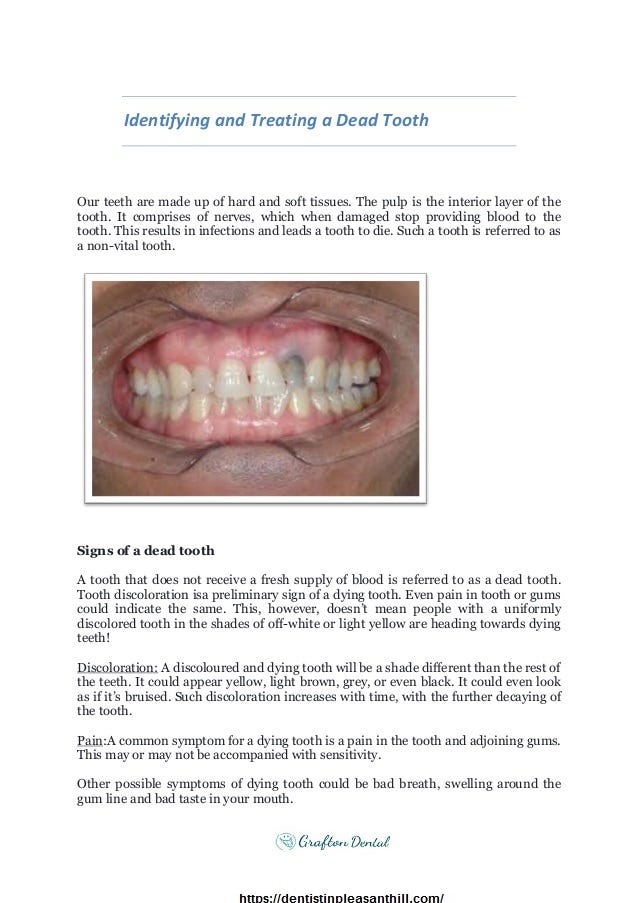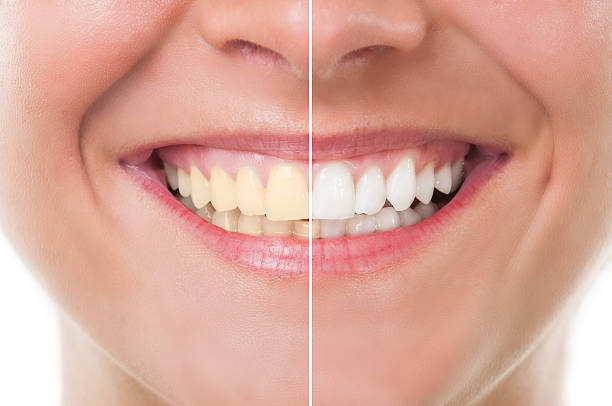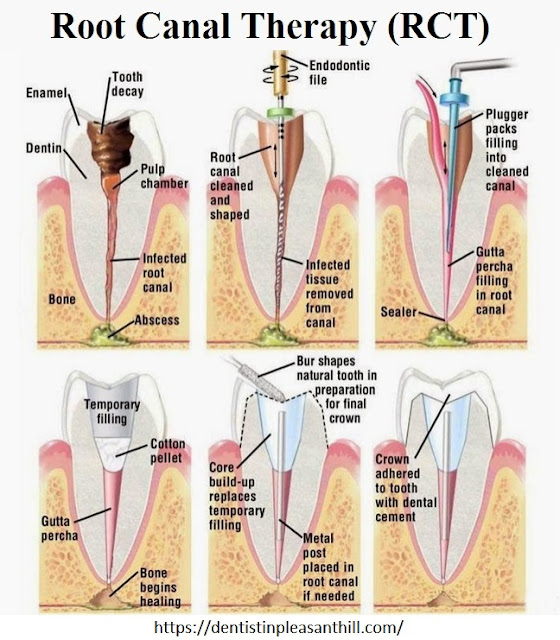How Long Does a Death Tooth Stay in the Mouth?
A dead tooth does not contain blood flow due to which it does not sustain life. It will fall eventually by itself. But it is not wise to leave it untreated as it can increase the infection to the surrounding teeth, gums and jawbone.
Therefore, it is better to contact your dentist as soon as possible.
Death Tooth: Symptoms, Causes, Prevention& Treatment
A dead tooth is the one that doesn’t have any blood flow to it. It changes color and is painful. It can be caused by injury or tooth decay.
A tooth contains three layers enamel, dentin, and pulp. The blood vessels and nerves are present in the pulp, which, when die, leads to a dead tooth.
The dead will eventually fall by itself. But if it stays longer in the mouth, it can cause infection and affect the other teeth and jaw.
 |
| Identifying and Treating a Dead Tooth |
Symptoms:
It is difficult to recognize a dead tooth for a normal person as there are not many physical differences in a dead tooth. To ensure if a tooth is really dead, you will need regular visits to the dentist to detect the problem earlier before it causes more trouble.
Two of the major symptoms associated with the dead tooth are:
· Pain:
When a tooth is dying, it can cause unnoticeable to excruciating pain. It can cause an increase in pain due to developing infection. You may experience pain even though the nerve is dead.
It is because the pain arises due to the sensitive nerve endings around the outside of the tooth, commonly known as the periodontal membrane.
Inside the bacteria or pus can build up in the pulp cavity that puts pressure on the periodontal membrane causing intense pain.
If the infection is left untreated, it can turn into an abscess and cause other symptoms, including bad taste, bad smell, swelling, and a pimple on the gums.
· Change in Color:
A dead tooth often changes color and becomes darker. The discoloration can be yellow, grey, or black in color. The tooth changes its color when the red blood cells are dying inside.
The discoloration happens when the dead tooth is left untreated.
If you see any symptoms of a dead tooth, then you must contact your dentist immediately to avoid future problems.
Your dentist in Pleasant Hill, CA, will take an X-ray to check if the tooth is dead. The sooner you diagnose the dead tooth, the better it will be for you.
Causes of Dead Tooth:
There are two major causes of a dead tooth:
· Tooth Decay:
A tooth becomes dead when it is decayed. Tooth decay starts from the outermost layer of the tooth and penetrates into the deeper layers when left untreated.
With time when untreated, it will reach the pulp. It will also make a passage for the bacteria to enter inside the tooth that causes the nerve to die.
An infected pulp cannot fight the infection, and the white blood cells hold the infection for a long time. Due to which pressure increases inside the pulp, the blood supply is cut off that starves the nerve and kills the pulp causing immense pain.
· Tooth Trauma:
Tooth trauma occurs due to injury to the tooth. Injuries can happen in sports activities or some accidents due to which the blood vessels burst, cutting off the supply of blood to the tooth.
Lack of blood supply to the tooth, nerves, and other tissues causes the pulp to die.
Prevention Or Tips To Avoid Dead Tooth:
A dead tooth can create a lot of problems for you. So it is important to prevent a dead tooth. You cannot control the accident or injuries in life, but you follow good oral hygiene to reduce the chances of having a tooth die.
· Tip 1: Brush your teeth twice a day regularly. Make use of fluoride-based toothpaste. Flossing is also very important in the day. Go for regular tooth cleanings and checkups.
· Tip 2: Wear a mouth guard or gum shield while playing sports or in intense activities. Reduce the intake of sugary foods and drinks to prevent the bacteria from causing tooth decay.
Drink water after every meal to wash away the bacteria from the mouth. Taking preventive care will reduce the chances of a dead tooth.
Treatment:
To prevent a dying tooth, treatment is necessary. An untreated tooth will spread the bacteria to other teeth, further affecting gums and jawbone. The dead or dying tooth is treated by root canal treatment or by tooth extraction.
- Tooth Extraction:
If a tooth is beyond repair, then the only option left is to extract the tooth. The dentist will use local anesthesia that will make it a painless procedure.
The extracted tooth will be replaced by a dental implant, crown, or bridge based on your teeth condition and your preference.
- Root Canal Treatment:
The root canal treatment can save a tooth from a further infection that may extract the tooth. The dentist will remove the infected pulp from the tooth and the tooth root. It will then cleaned and sealed to prevent further infection.
Then your tooth will be filled permanently. To provide support to the treated, some people need to have a crown placed over the tooth. I was wondering where you can get a dentist near me to treat your dead tooth? Consider visiting Grafton Dental in Downtown Pleasant Hill.
If you live in some other areas, then Downtown Pleasant Hill also offers services in surrounding locations of Walnut, Concord, Creek, Martinez, and Lafayette.


Dr berman dds I admire this article for the well-researched content and excellent wording. I got so involved in this material that I couldn’t stop reading. I am impressed with your work and skill. Thank you so much.
ReplyDeleteExcellent post! It is very useful to read for the users and keep post more blogs for more useful information.Metlife dentist in Milpitas
ReplyDeleteIt’s very good blog! For sharing content and such nice information for me. I hope you will share some more content about. Please keep sharing.
ReplyDeleteInvisalign Dentist Near Me
General and Family Dentistry
All on 4 Dentures
Affordable Dental Implants
Dental Implant Clinic Antioch